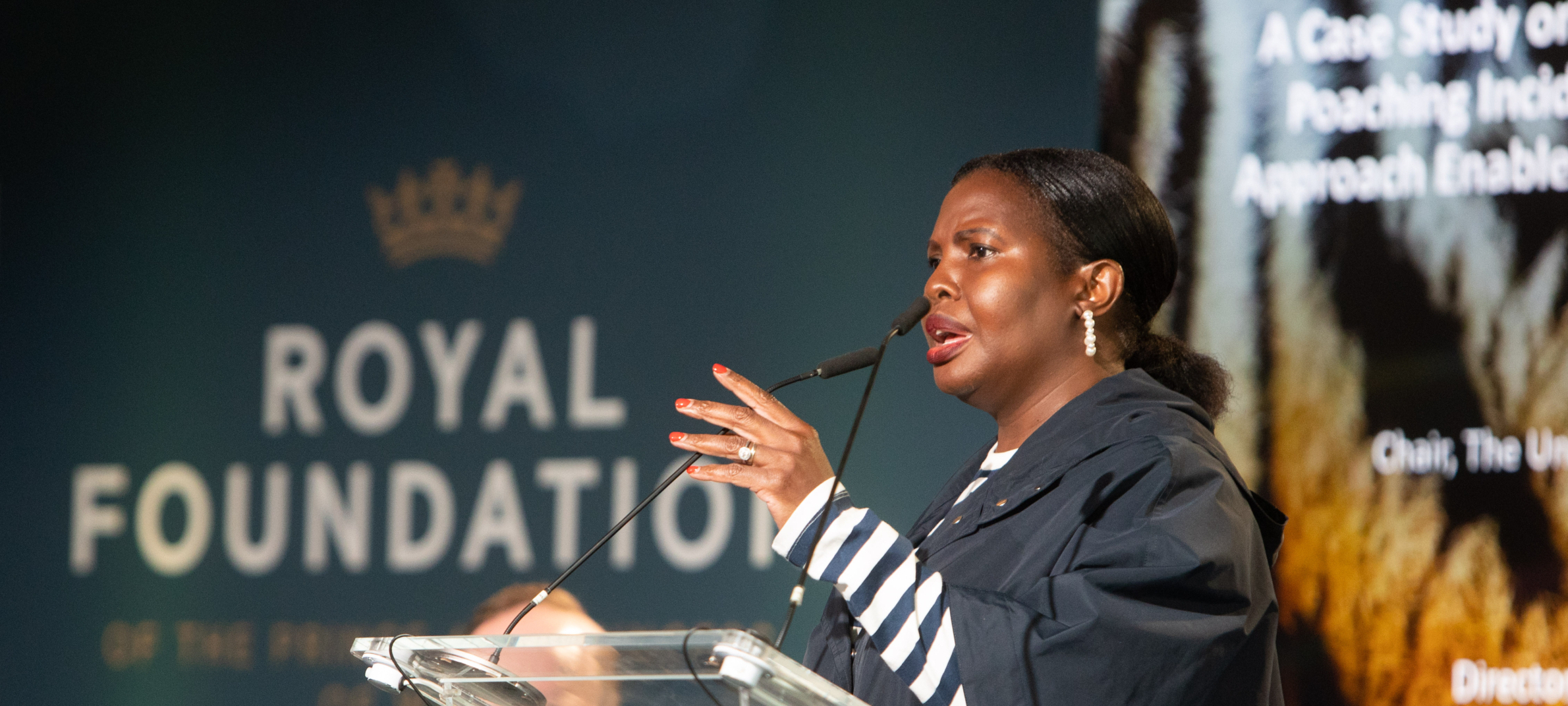
United for Wildlife Financial Taskforce Manager Geraldine Fleming expands on her remarks at the 2023 UK Finance Economic Crime Congress
It’s the dead of night. A gunshot rings out in the wilderness. A rhino lies dying, stripped of its horn, which will be sold for profit. This is the perception of wildlife crime that people are most familiar with – a single poacher, a single victim, one man making a profit.
But this is far from the whole story. For such a high-profile issue, wildlife crime and its ramifications are not widely understood. This is not a crime driven by individuals, but by highly organised, international criminal networks. This is not the ad hoc targeting of individual animals, but the systematic harvesting of species at scale to serve high-demand markets. The solution must be equally coordinated, equally systemic, and equally driven by strong relationships that exist across organisational, sector, and geographic boundaries.
It’s well understood that that the illegal wildlife trade damages ecosystems and drives biodiversity loss by removing keystone species from landscapes. However, what often flies under the radar are the wider ramifications, impacting communities and society at large.
The costs of wildlife crime are far reaching. Its organised nature means that corruption, coercion, and violence are a fact of life for communities that live alongside wildlife. At the macro level, loss of iconic species severely impacts the potential for areas to derive economic benefits from tourism, leaving poor families poorer. At an individual level, those employed in protecting at-risk species are quite literally putting themselves in the firing line. Loss of life amongst rangers is an all-too-common reality. 10 – 15 rangers die every month protecting wildlife, leaving families and communities to deal with not only the loss of a loved one, but also the loss of income providers. Those in the profession also face a considerable load on their mental health from the fact that they share their communities with the very criminals they are threatened by.
And the ramifications are by no means isolated to source countries and individual communities. Many of the species most vulnerable to trafficking are crucial to the health of global ecosystems. These ecosystem engineers control populations of prey species, manage vegetation, ensure seed dispersal, prevent wildfires and desertification – remove them, and entire natural systems that humans depend upon quickly fall apart.
I haven’t even mentioned the impact on global public health. The trafficking of primates, birds and other animals around the world in unsafe and unsanitary conditions is paving the way for a host of zoonotic diseases that have the potential to cause damage above and beyond the scale of Covid-19.
This is what we need to be emphasising to the business world. Wildlife is not simply a “nice to have”. And while the moral argument that wildlife has an intrinsic right to exist is a valid one, we don’t do what we do only for the love of animals. The fact is that loss of these species is a major risk to the bottom line of businesses around the world. Poverty, public health disasters and entire swathes of land becoming near uninhabitable could represent the beginning of the end for businesses in certain parts of the world.
In the finance sector, we are already seeing change. Through the United for Wildlife Financial Taskforce, we have seen an uptick in awareness around wildlife trafficking and the risk businesses face of being unwitting accomplices to the illicit trade. Criminal groups operate much like other multinational companies, using the services of legitimate commercial transport, finance and other firms to carry out their illicit business. The onus is on every business to understand how they are exposed to financial and other risks related to wildlife trafficking, money laundering and organised crime.
So the work continues. We must keep building relationships between transport, finance and law enforcement regionally, so that information can be quickly shared across borders to disrupt transport, effect seizures and make arrests.
The scale of the challenge is immense. The costs of failure are incalculable. But together, through a united, global approach, we can create ecosystems that make the risk of trafficking in wildlife vastly outweigh the reward.
Find out more about the United for Wildlife Financial Taskforce and its role in disrupting the illegal wildlife trade here.
Related Posts





